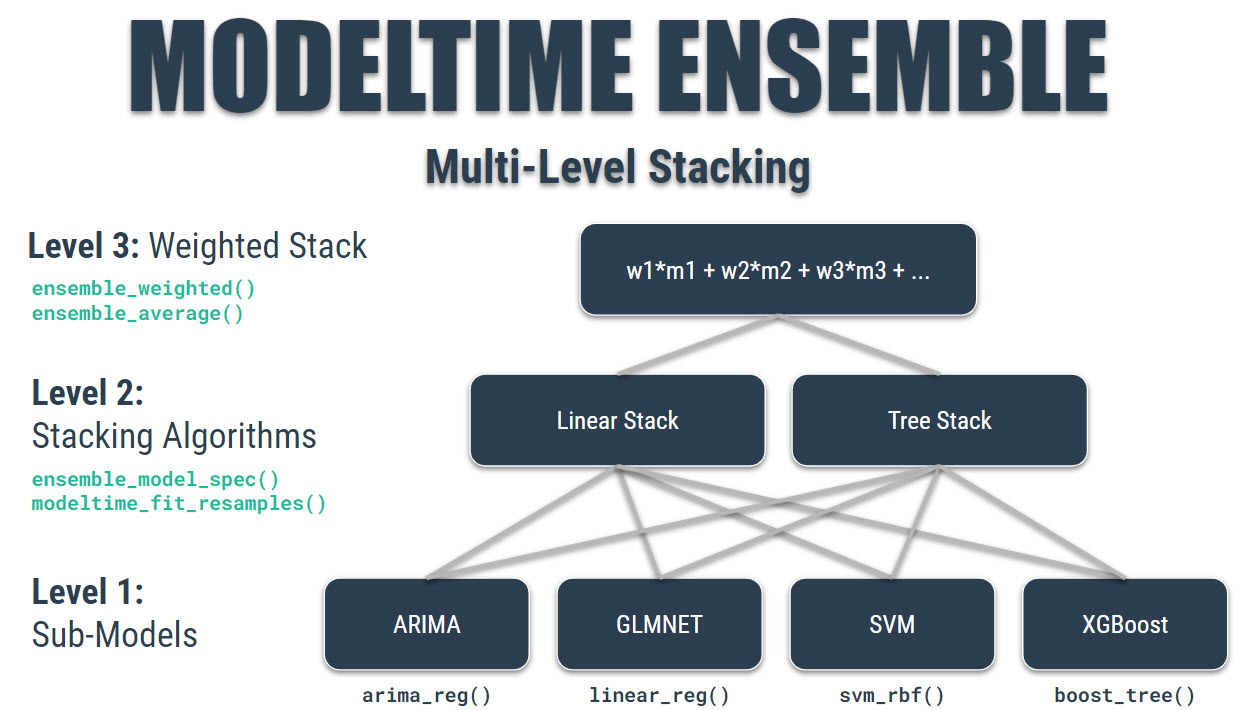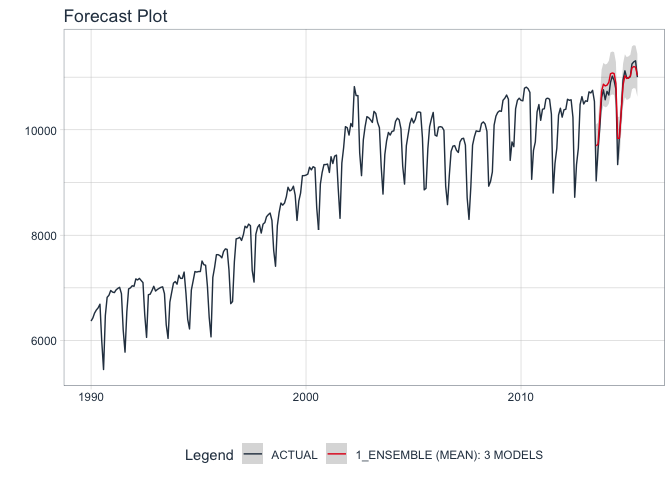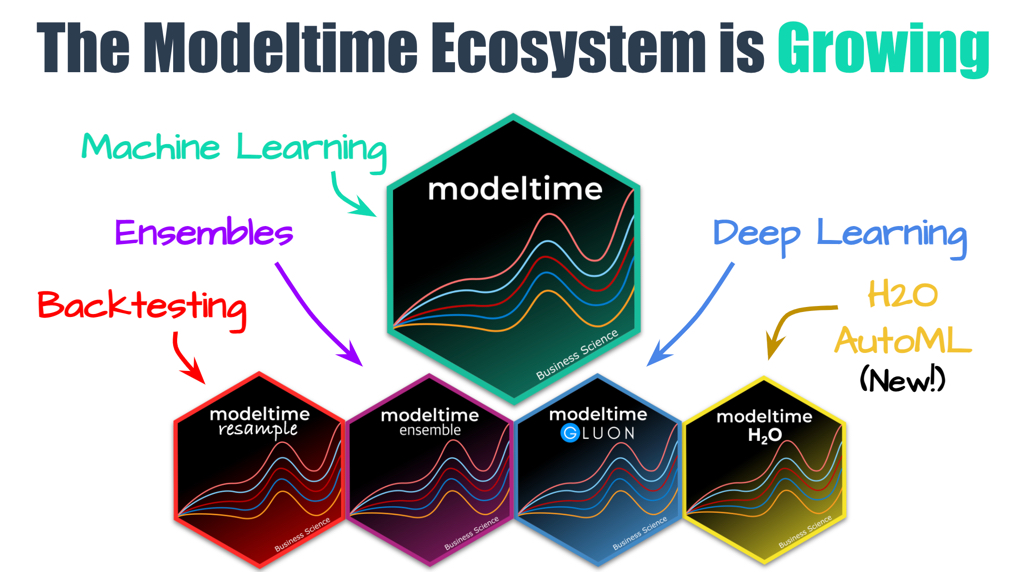
The hardware and bandwidth for this mirror is donated by dogado GmbH, the Webhosting and Full Service-Cloud Provider. Check out our Wordpress Tutorial.
If you wish to report a bug, or if you are interested in having us mirror your free-software or open-source project, please feel free to contact us at mirror[@]dogado.de.

Ensemble Algorithms for Time Series Forecasting with Modeltime
A modeltime extension that implements
ensemble forecasting methods including model
averaging, weighted averaging, and stacking.

Install the CRAN version:
install.packages("modeltime.ensemble")Or, install the development version:
remotes::install_github("business-science/modeltime.ensemble")Load the following libraries.
library(tidymodels)
library(modeltime)
library(modeltime.ensemble)
library(dplyr)
library(timetk)Create a Modeltime Table using the modeltime
package.
m750_models
#> # Modeltime Table
#> # A tibble: 3 × 3
#> .model_id .model .model_desc
#> <int> <list> <chr>
#> 1 1 <workflow> ARIMA(0,1,1)(0,1,1)[12]
#> 2 2 <workflow> PROPHET
#> 3 3 <workflow> GLMNETThen turn that Modeltime Table into a Modeltime Ensemble.
ensemble_fit <- m750_models %>%
ensemble_average(type = "mean")
ensemble_fit
#> ── Modeltime Ensemble ───────────────────────────────────────────
#> Ensemble of 3 Models (MEAN)
#>
#> # Modeltime Table
#> # A tibble: 3 × 3
#> .model_id .model .model_desc
#> <int> <list> <chr>
#> 1 1 <workflow> ARIMA(0,1,1)(0,1,1)[12]
#> 2 2 <workflow> PROPHET
#> 3 3 <workflow> GLMNETTo forecast, just follow the Modeltime Workflow.
# Calibration
calibration_tbl <- modeltime_table(
ensemble_fit
) %>%
modeltime_calibrate(testing(m750_splits), quiet = FALSE)
# Forecast vs Test Set
calibration_tbl %>%
modeltime_forecast(
new_data = testing(m750_splits),
actual_data = m750
) %>%
plot_modeltime_forecast(.interactive = FALSE)
Learn a growing ecosystem of forecasting packages

The modeltime ecosystem is growing
Modeltime is part of a growing ecosystem of Modeltime forecasting packages.
Become the forecasting expert for your organization
High-Performance Time Series Course
Time series is changing. Businesses now need 10,000+ time series forecasts every day. This is what I call a High-Performance Time Series Forecasting System (HPTSF) - Accurate, Robust, and Scalable Forecasting.
High-Performance Forecasting Systems will save companies by improving accuracy and scalability. Imagine what will happen to your career if you can provide your organization a “High-Performance Time Series Forecasting System” (HPTSF System).
I teach how to build a HPTFS System in my High-Performance Time Series Forecasting Course. You will learn:
Modeltime - 30+ Models (Prophet, ARIMA, XGBoost, Random
Forest, & many more)GluonTS
(Competition Winners)Become the Time Series Expert for your organization.
Take the High-Performance Time Series Forecasting Course
These binaries (installable software) and packages are in development.
They may not be fully stable and should be used with caution. We make no claims about them.
Health stats visible at Monitor.